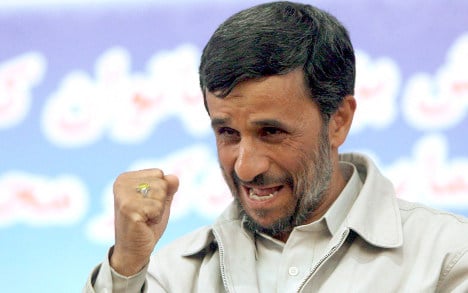Under pressure from the United States to break direct commercial links with the Islamic republic, India intends to place money for its Iranian oil imports in an account with the Bundesbank, according to Handelsblatt.
The Bundesbank would then transfer the money to the European-Iranian Trade Bank AG (EIH), based in the northern German city of Hamburg, the paper said, quoting financial and political sources.
“We are in talks with the Bundesbank,” Neeta Bhushan of the Indian Finance Ministry told the paper.
The arrangement has been given the green light by two ministries in the German government, the Handelsblatt reported.
Two of the EIH’s main shareholders, Bank Mellat and Bank Refah, are subject to European Union sanctions approved last year in addition to UN restrictions, the paper said.
Contacted by news agency AFP, the Bundesbank declined to comment while a spokeswoman for the Economy Ministry told a regular government briefing that the EIH, also known as the EIHB, was itself not subject to EU or UN sanctions.
“The inclusion of a bank on the [sanctions] list is not something decided by the [German] government but the European Union council,” spokeswoman Sarah Schneid said.
“What counts is involvement of a bank in financing Iran’s nuclear and missile programme … The government investigates closely any indications [of such involvement].”
Chancellor Angela Merkel’s spokesman Steffen Seibert stressed that the bank was under “strict” supervision, with all transfers over €10,000 ($14,000) needing to be reported and all those above €40,000 requiring approval.
Germany has long been under fire for its close business ties with Iran, with the country’s exports there totalling €3.8 billion in 2010, according to official figures.
Berlin’s abstention this month over a UN Security Council resolution – it holds a non-permanent seat in the body – authorising military action in Libya has also angered Germany’s partners and put Merkel under pressure at home.
AFP/adn



 Please whitelist us to continue reading.
Please whitelist us to continue reading.
Member comments